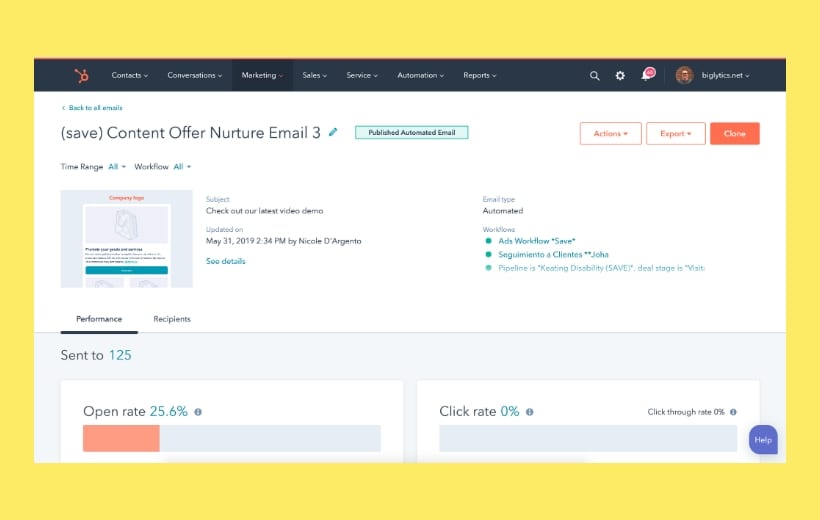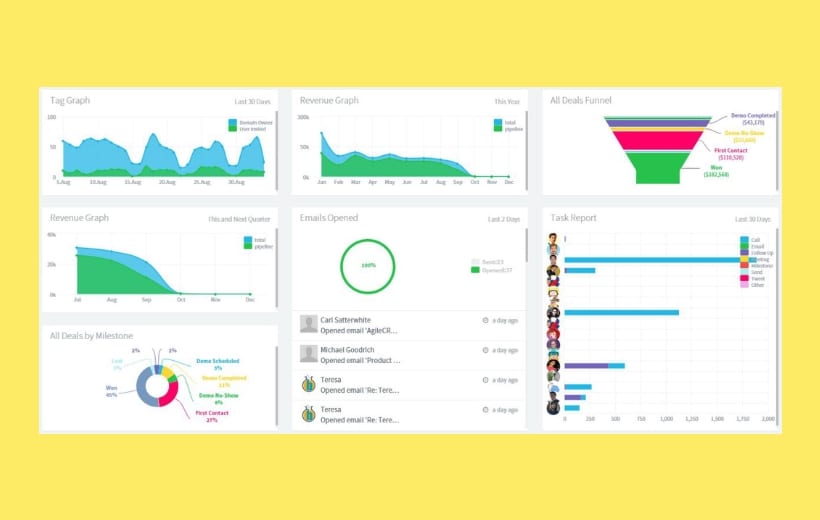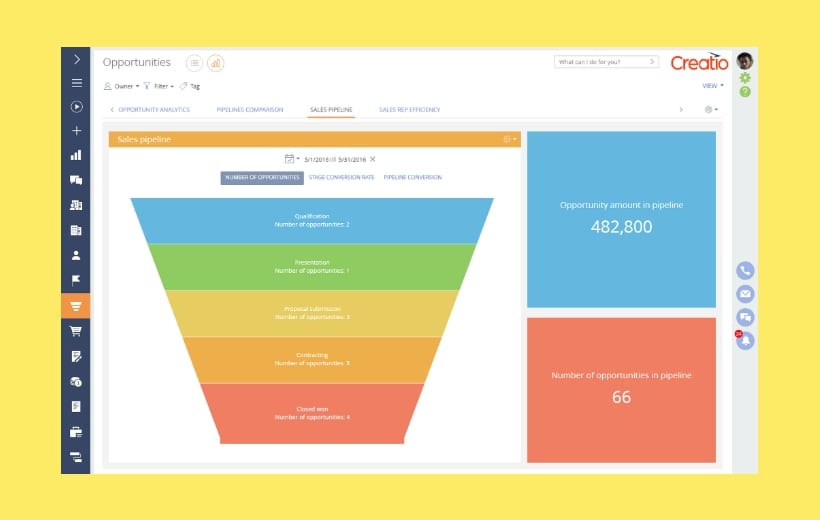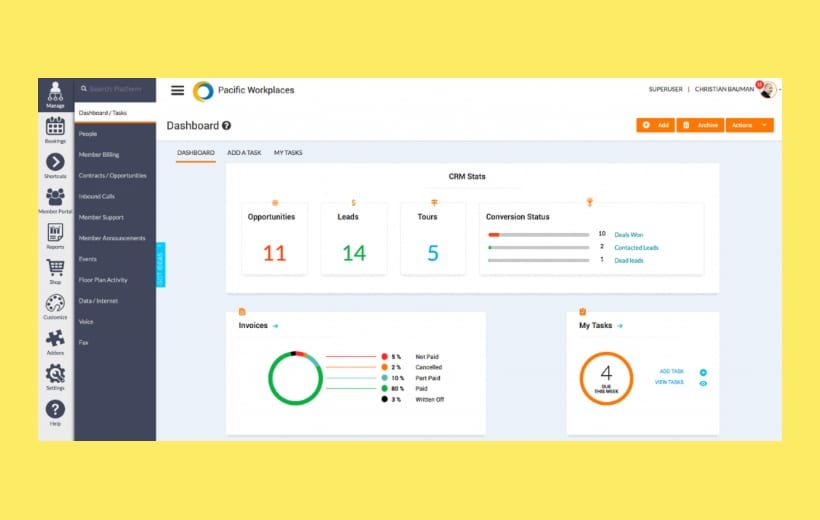Let’s face it: B2B relationship management is complicated.
The sales are rational here, not driven by emotions as in B2C one. The buying cycles take longer; the businesses are more contact-based and work with a much smaller audience.
There’s no chance you’re making it up to the end of the B2B sales funnel without a proper strategy and great tools. And B2B CRM seems to be a decent combination of both.
But how can CRM help to run a B2B company? What exactly is it? And, most importantly, what business benefits does it bring?
In this article, we’re going to figure out the role of B2B CRM, its benefits to operations, sales and marketing analytics, and the best use cases.
Let’s get started.
What is B2B CRM?
First, the basics. CRM stands for customer relationship management. And it’s all about putting clients’ needs first.
B2B CRM can be a management strategy, process, or software used for collecting data. But primary, it’s a way of understanding and fulfilling customers’ needs at each stage of the sales cycle.
B2B software solutions are capable of collecting tons of data from client’s communication channels (websites, chats, online calls, and more) and its analysis.
In turn, this allows employees from sales, marketing, and CS teams to make quick and informed decisions on everything from up-selling and cross-selling.
Besides, that’s how they improve communication quality and responsiveness. Along with the coordination of sales and marketing campaigns.
The data collected by CRM software include sales reports, inquiries, and notes of the issues faced. All this info is stored in a database. Usually, a cloud one and the company’s staff can access these details anytime.
Why is CRM Important for B2B Companies?
The basic idea of any sales cycle is to guide customers through content that increases brand awareness and generates leads. And end it all up with the actual sale.
But it’s a lot way harder to do when companies are the clients. They often have many viewpoints and quite a few requirements at each stage of the process.
So figuring out what such clients need at each step of the way becomes a real challenge.
That’s the perfect moment for CRM software to step in. CRM solutions help with prioritizing sales and marketing efforts when the company is dealing with different groups of customers.
The system allows both marketing and sales teams to keep track of the leads and store details about each potential client. Using this data, companies can swiftly decide on when to motivate customers to move to the next stage, and how to do it best.
B2B CRM gives companies a better understanding of customers’ needs and wants. And the more you know about your buyers, their preferences and behavior, the better offers you can bring.
Four Benefits of B2B CRM
Sure, it’s the sales team that is going to make most of B2B CRM. Still, marketing and service depts may also take huge advantage of it.
Let’s find out how.
-
Launch targeted marketing campaigns
The launch of any advertising campaign may be hard. But what if there are a few projects to promote? At once?
CRM systems help companies create highly personalized marketing campaigns that do reach the target audience.
The team can quickly identify potential clients and focus on communicating with them.

Here’s an example: British Airways applied CRM software to automate ongoing campaigns and improve the level of communications with customers. They used Teradata CRM to understand their customers’ needs better and fulfill them.
Teradata CRM allows managing emails, calls, and web channels within a single interface. And that’s exactly the tool British Airways needed to enhance its marketing communications.
-
Deep analytics and reporting
How do we find out if the promotion campaign was a success? That’s right – we check its results in the CRM.
Which campaign gives the highest ROI? What’s the sales forecast for the next quarter? CRM stores all this data too.
B2B CRM software comes with analytics and reporting features that help the sales team to figure out which actions lead to return on investment, prepare the sales forecast, and more.
Usually, these details, metrics, and reports are shown on the dashboard – and there’s often a button to generate accurate reports next to it.

-
Make data-driven decisions
And we’re back to the sales team again. B2B CRM plays a vital role in predictive lead scoring – it allows the sales dep to define which leads are the best-qualified, based on their previous behavior.
This is the practice of ranking leads according to how they may result in a sale.
By combining abstract customer analytics with the stages clients passed through, CRM effectively leverages customer data. And turns your ‘on-paper’ sales funnel into a real profit-driving tool.

Unilever knows the importance of keeping their clients’ data in one place. That’s why they applied a ‘Traction’ platform to collect real-time insights and launch data collection campaigns.
Traction software helps to launch and conduct multichannel campaigns, collect clients’ feedback, and analyze it.
-
Align marketing and sales forces
Here’s a tip: if you want to create the best possible customer experience on your B2B marketplace website, you need to make sure that sales, marketing, and CRM are working closely together.
By aligning marketing and sales efforts, the company has a chance not only to clear all their goals but to define the number of qualified marketing leads needed to achieve them.
As the lead from a prospect turns into a sales qualified one, the marketing and sales deps should be perfectly synchronized. This allows the sales team to follow up on the lead right after it becomes sales qualified.

Cisco is among the companies that applied CRM software – and did it great. They wanted to create a solution that allows real-time collaboration within the company.
So Cisco ended up with the WebEX software that helps to solve complex issues or timely contact the response team.
Plus, it makes the life of their sales team 20% easier.
According to the Cisco report, the sales department found 20% more time to work on strategic tasks after software implementation.
Wrapping Up
As you see, CRM software helps businesses to know their customers better and better serve them. The staff works more productively; sales and marketing campaigns are based on clearly defined stages.
All that leads to building better relationships with clients and gaining their trust, which is a to key success in B2B sales.
office meeting – DepositPhotos


